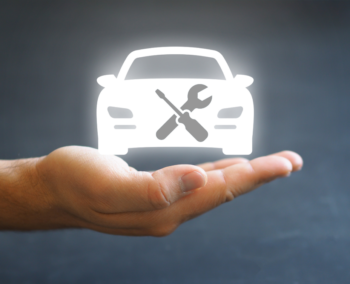
By becoming a guarantor for a friend or family member, you’ll be helping them get behind the wheel with a car loan. But acting as a guarantor for someone comes with responsibilities and even an element of risk, which you need to understand fully before you agree to it.
If you’re thinking of becoming a guarantor, this information could be for you.
What is a guarantor and what does being a guarantor mean?
Being a guarantor is a way to help someone secure credit when they have financial circumstances that discourage lenders.
A guarantor car loan works in the same way most other car finance does. The application process involves both the borrower and the guarantor to ensure that they satisfy the lender’s criteria.
A deposit is still required, too – where applicable – as well as several fixed repayments over an agreed amount of time. The difference with a guarantor car loan is that a third party (the guarantor) is there to ensure all the payments are met. So, as a guarantor, you are ‘guaranteeing’ the loan by promising to cover the payments if the borrower ever cannot.
If the borrower fails to make a payment for whatever reason, it’s up to the guarantor to take responsibility for it and pay it on their behalf.
Read: What is a guarantor and can I use one to finance a car?
Who can be a guarantor?
Almost anyone can be a guarantor for a car loan, but different lenders may have different eligibility criteria. In general, you need to be over 21 (although there are lenders that will accept someone over 18). A guarantor also needs to have a good credit score and a good credit history of making regular repayments.

Often the lender will ask that the guarantor is a homeowner, but they may accept non-homeowners as long as they have a fixed address and have lived there for several years.
Most guarantors are either a family member or a close friend of the borrower. You should only ever be a guarantor for someone who you trust and who you would be willing to cover payments for if you ever needed to.
Lastly, you cannot be a guarantor to someone you’re financially linked with (so if you wanted to be a guarantor for a spouse or partner, for instance, you could only do so if you had separate finances).

Rates from 12.9% APR. Representative APR 18.9% We are a credit broker, not a lender.
*a hard search will be performed if you decide to proceed
Why would someone need me to be a guarantor for a car loan?
Someone may need you to be a guarantor for a car loan if they’re struggling to get approved from a lender or if they can’t access an affordable interest rate by applying on their own.


This could be for a variety of reasons, but the main reasons include:
Their age: Young drivers often haven’t had time to build up enough credit history to satisfy lenders’ criteria. A guarantor who has a more established credit record can help.
Their credit rating: If someone has a low credit score, they’ll usually struggle with getting accepted for a car loan. A guarantor with good credit minimises that risk for the lender.
Read: How to qualify for a car loan when you have bad credit
They’re self-employed or have an irregular income: Lenders, on the whole, like stability; and income can play a large part in whether someone is accepted for a loan or not. A guarantor acts as a safety net if the borrower’s income cannot stretch to make payments.
If you’re considering or have been asked to act as a guarantor, it’s important to have an open conversation as to why they need you to be their guarantor so your decision can factor in their reasons.


If they’re asking you to be a guarantor because of bad credit, do you feel confident that they can manage their finances now? If it’s due to income, do they have savings or a backup plan should they fall short one month? Having a candid conversation before you agree to become a guarantor can prevent any misunderstandings later down the line.
How much does it cost to be a guarantor?
Being a guarantor on a car loan shouldn’t cost you anything unless the borrower misses or stops making repayments. If this happens, then you’ll be liable for making those payments along with any subsequent fees. So it’s a good idea to ask yourself before you agree to be a guarantor if you can afford to pay back the loan if they can’t or won’t.
Will I be a guarantor for the duration of the car loan?
Typically, car loans run for a relatively short period of time – two to five years. Once you’ve signed up to be a guarantor, you usually have a 14-day cooling-off period to back out if you want. Otherwise, you remain a guarantor for either the duration of the term or until all the repayments plus interest have been made.
Can I stop being a guarantor at any point of the loan?
As the loan has been approved based on your details – your credit history, employment status, homeownership – you can’t be easily removed from the agreement. The only way to stop being a guarantor would be to repay the loan off in full early plus any charges and interest.
What does a guarantor need to provide for a car loan?
A guarantor usually needs to provide the same information as the borrower. This will include proof of ID, such as a passport or driving licence, proof of address (usually utility bills and bank statements, as long as they’re dated within the three months before application are accepted) and bank details.


Depending on the lender, you may be asked for proof of income or further supporting documents.
What checks will lenders do before a guarantor car loan?
When you apply for guarantor car finance, the lender will run a series of checks on both the borrower and the guarantor. These will mainly be examining your credit history, your credit score and your current finances to assess whether you’ll be able to repay the loan as well as the affordability of the loan.
Read: What credit checks are done for car finance?
If you want to find out more about becoming a car loan guarantor or are ready to apply, contact our team on 01254 956777 or Apply Now.







Get a quote in minutes ✅
– with zero impact on your credit score!*
Get Started






Rates from 12.9% APR. Representative APR 18.9% We are a credit broker, not a lender.
*a hard search will be performed if you decide to proceed













